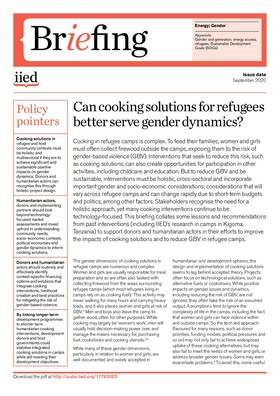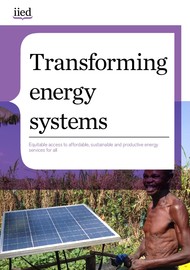Can cooking solutions for refugees better serve gender dynamics?

Cooking in refugee camps is complex. To feed their families, women and girls must often collect firewood outside the camps, exposing them to the risk of gender-based violence (GBV). Interventions that seek to reduce this risk, such as cleaner cooking solutions, can also create opportunities for participation in other activities, including childcare and education. But to reduce GBV and be sustainable, interventions must be holistic, cross-sectoral and incorporate important gender and socio-economic considerations; considerations that will vary across refugee camps and can change rapidly due to short-term budgets and politics, among other factors. Stakeholders recognise the need for a holistic approach, yet many cooking interventions continue to be technology-focused. This briefing collates some lessons and recommendations from past interventions (including IIED’s research in camps in Kigoma, Tanzania) to support donors and humanitarian actors in their efforts to improve the impacts of cooking solutions and to reduce GBV in refugee camps.
Cite this publication
Available at https://www.iied.org/17762iied






